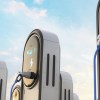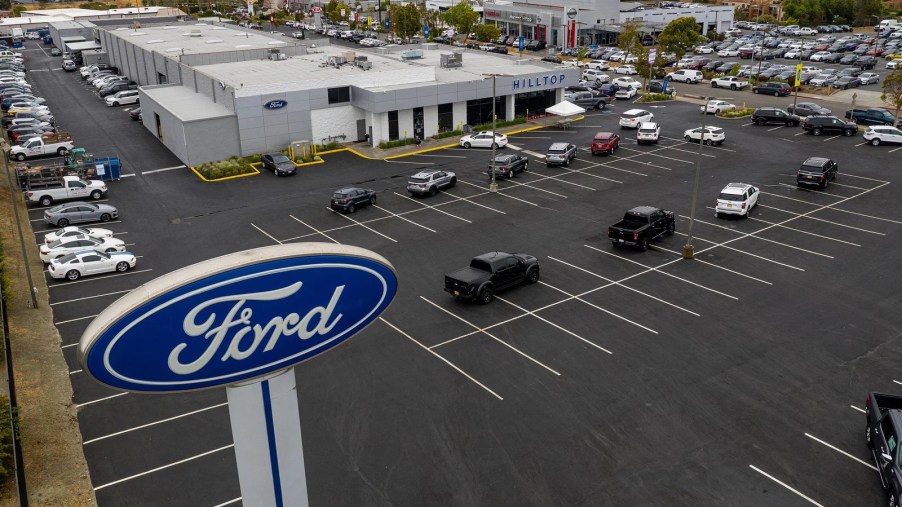
Waiting to Buy a New Car? So Are Half of Car Shoppers
If you know anything about the new car market right now (and studies show you do), then you’re well aware there’s a shortage of new cars. And when there are fewer units to sell, the prices skyrocket in order to turn a profit. We’re living in what might be the worst period of time to buy a car, new or used. And a Kelley Blue Book report highlights just how many people are shying away from purchasing a car right now.
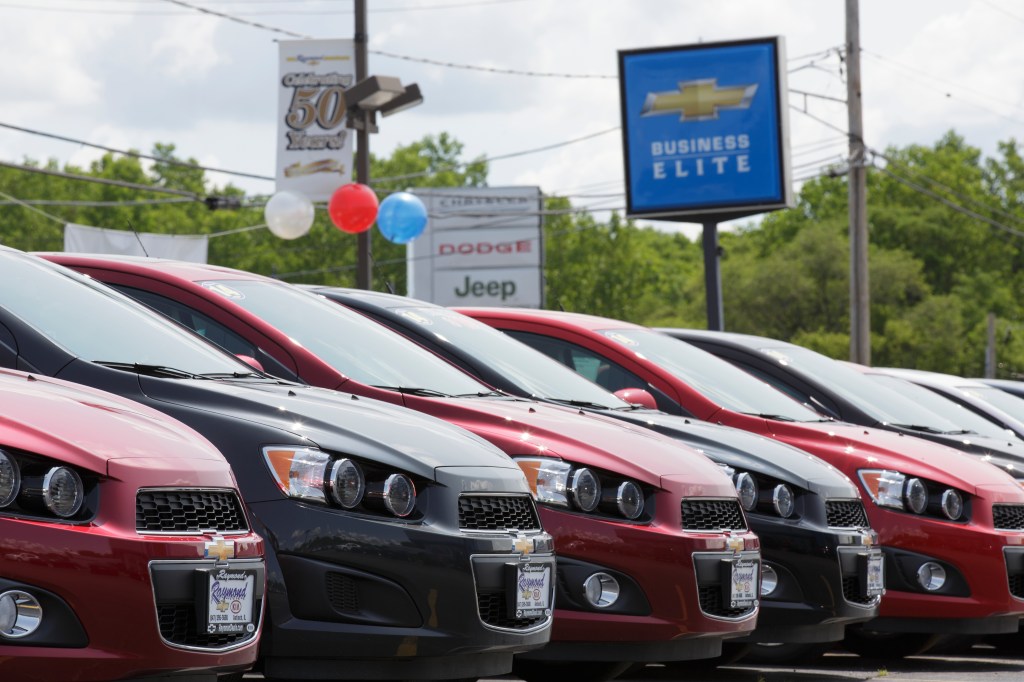
According to Kelley Blue Book, 48% of global car buyers are waiting for the market to settle
In 2019, before the global pandemic and chip shortage mucked everything up, over 17 million vehicles were sold in the US. Then, 2020 saw a significant dip, with automakers only selling 14 million cars nationwide. And as of August of this year, at the end of the third quarter, national car sales sit at just 9 million units. Provided, there are still four months worth of data yet to be collected. But it’s uncertain whether automakers will sell enough to surpass last year’s sales.
According to GoodCarBadCar, automakers sold 1.3 million cars in June of 2021. But just one month later, sales dipped to just 680,000 units sold. For comparison, sales haven’t been this low since the beginning of 2009. The low sales are in part due to high prices caused by the seemingly endless chip shortage and covid pandemic, but public opinion on buying new cars has gone down as well.
As mentioned, Kelley Blue Book reported that 48% of people are waiting to buy a new car, even though prices may not drop until 2023. And for the folks who are looking at new cars, skepticism is still high. 61% of people think that dealership incentives aren’t going to be as good, 69% are certain cars are only getting more expensive, and a whopping 83% of people expect their vehicle to be delayed upon ordering it.
But still, people are buying cars. But that doesn’t mean they’re buying the cars they want, nor does it mean they’re buying new.
How is the shortage affecting what cars people buy?
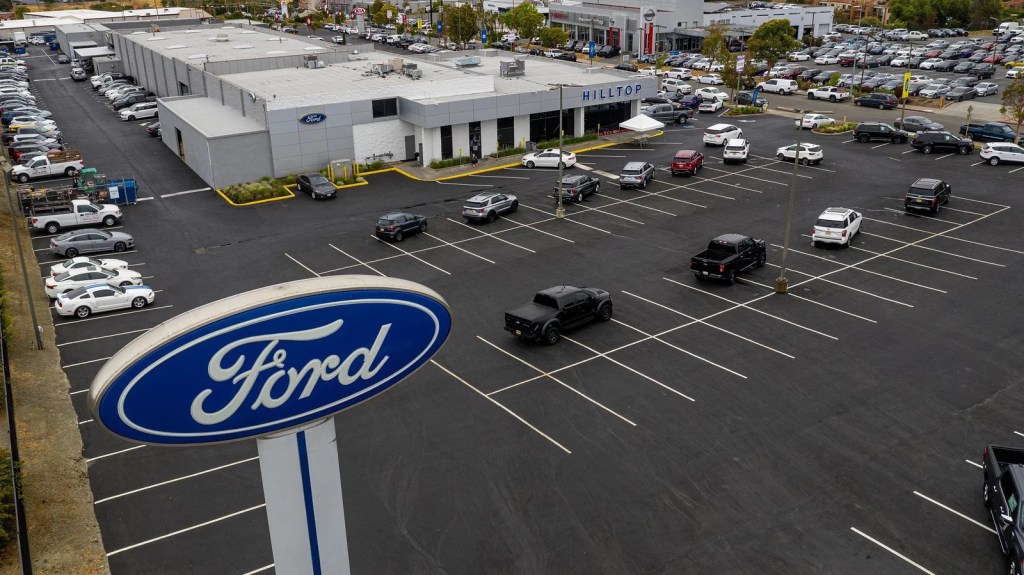
The data encompassed by Kelley Blue Book highlights more than just how people are responding to the shortage. For those who are still buying a car, they’re changing their ways to adapt to the current market. And while some flexibility is good, some of these changes in car buying sound like sacrifices.
For starters, 35% of new car buyers are willing to pay above MSRP, up to 13% more than the original price. Furthermore, many people are shifting their loyalty from one brand to another. 32% of new car buyers would consider reconsidering the brands they’re looking at. Likewise, 35% are already set on switching from foreign automobiles to domestic, just to get the car faster.
And while the used car market isn’t great either (well, it’s great if you’re selling a used car, not buying one), 38% of buyers are willing to shift from new to used vehicles. After all, 58% of people are well aware that the chip shortage is the cause of these high new car prices. And used vehicles already have those sought-after semiconductors. Meanwhile, only 18% of used car buyers would consider purchasing a new vehicle as of right now.
Alright, by now you’re probably sick of statistics. You just want this whole shortage to end and, quite frankly, so do I. But when will it? Fortunately, automakers are starting to see a shift in the semiconductor crisis, though it’s still a long road ahead.
When will all these shortage shenanigans end?
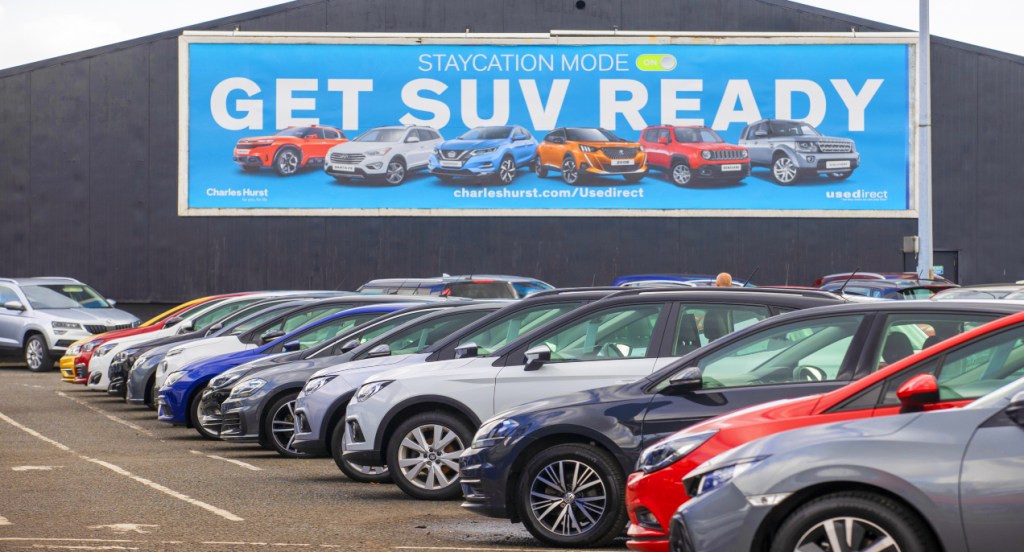
More automakers are coming out with statements on how things are beginning to improve. Ford CEO Jim Farley discussed that the Covid-19 situation in Malaysia, where semiconductors are produced, won’t last forever. The factories didn’t burn down, so once labor returns, they’ll start producing chips again.
Tesla CEO Elon Muk is also certain that the semiconductor shortage is a “short-term problem.” With semiconductor plans being built here in America, Musk doesn’t expect the problem (at least for Tesla) to last beyond 2022.
In short, the end is near, but it’s incredibly hard to tell how near it really is. For starters, automakers have to re-convince new car buyers that they’re affordable again because, as of now, they’re not. In fact, Kelley Blue Book reported that new cars are less affordable than ever, with a new car averaging $42,000.
Now is a terrible time to buy a car, new or used, unless it’s a total clunker for $1,000 bucks. But most people don’t want to drive a beater, as new cars are flashy and a symbol of success amidst shortages and sky-high prices. So yes, you could stick it to society by purchasing a new car today. Or you can be like 48% of buyers across the globe, and hold out until the prices drop again.
